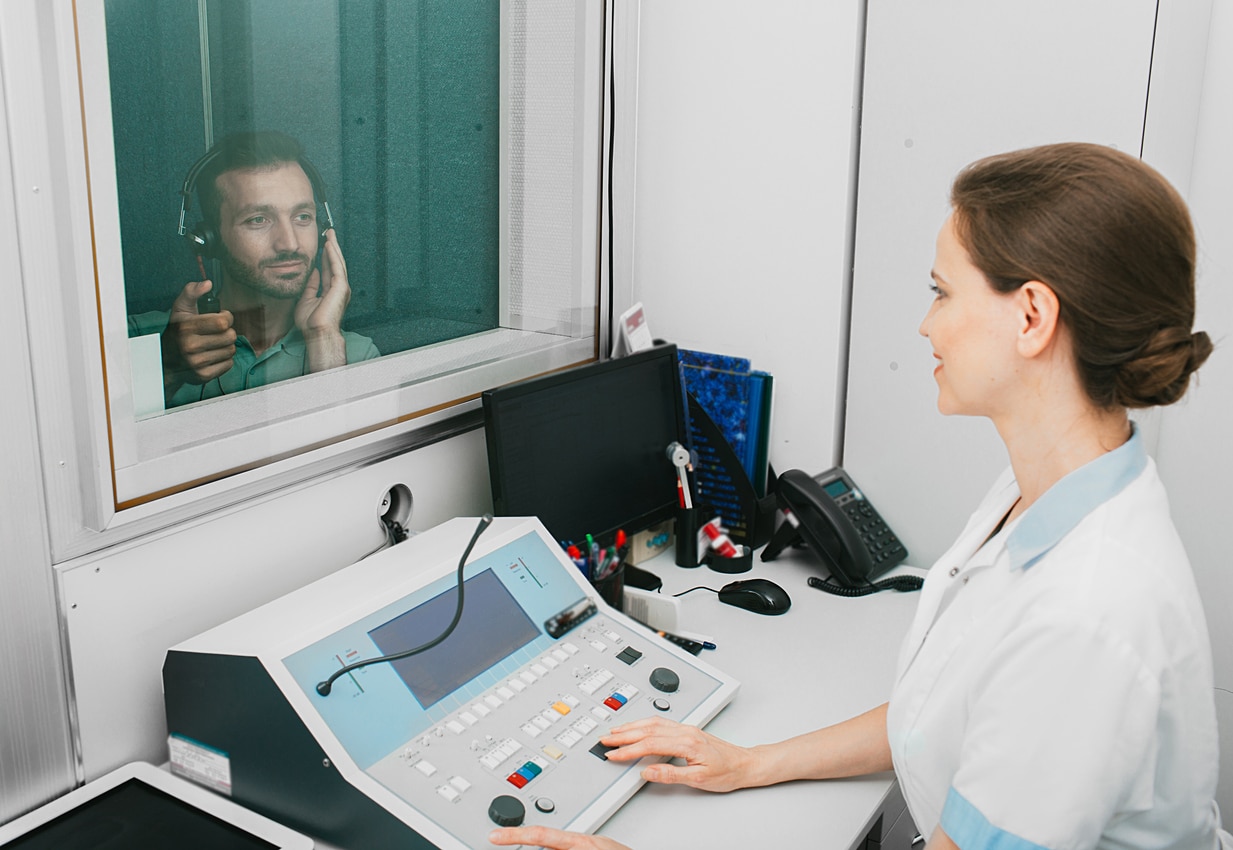A bone conduction test is a hearing test used to indicate to a hearing specialist whether sensorineural hearing loss versus conductive hearing loss is present. The test works by presenting sounds that gently vibrate the skull to indicate where there is hearing loss present in the outer or middle ear. It is often used in conjunction with an air conduction test, or a pure-tone test, which is the mainstay of investigations of hearing loss.
The test is non-invasive and shouldn’t be uncomfortable. Here’s what to expect.
About The Test

Bone conduction testing takes place in a sound booth right after air conduction testing, which is what people think of when they think of a traditional hearing test. The hearing specialist will replace the headphones from the air conduction test with a headband with a bone oscillator. The oscillator itself is positioned behind the ear on the mastoid bone. You also may be wearing earphones.
When the test begins the hearing specialist will instruct you to raise your hand or press a button when sounds are heard. Sounds will be presented at different volumes in either ear to determine if hearing loss is present.
How It Works
A bone conduction test works by delivering the sound through the mastoid bone behind the ear. Delivering sound this way bypasses the outer and middle ear, isolating what area hearing loss could be coming from. Determining the quietest sound you can hear can help the hearing specialist understand the current level of hearing loss. If you struggle to hear sounds during the bone oscillator test, it could be an indicator of inner ear hearing loss or sensorineural hearing loss. An air conductor hearing loss would identify conductive hearing loss.
Sensorineural hearing loss is typically irreversible. If diagnosed, your hearing specialist can work with you to identify symptom management options. This could include hearing aids, which greatly improve the ability to hear conversations and maintain social connections after hearing loss is identified.
To learn more about hearing health or to schedule a hearing test, contact ENT of Athens to request an appointment.